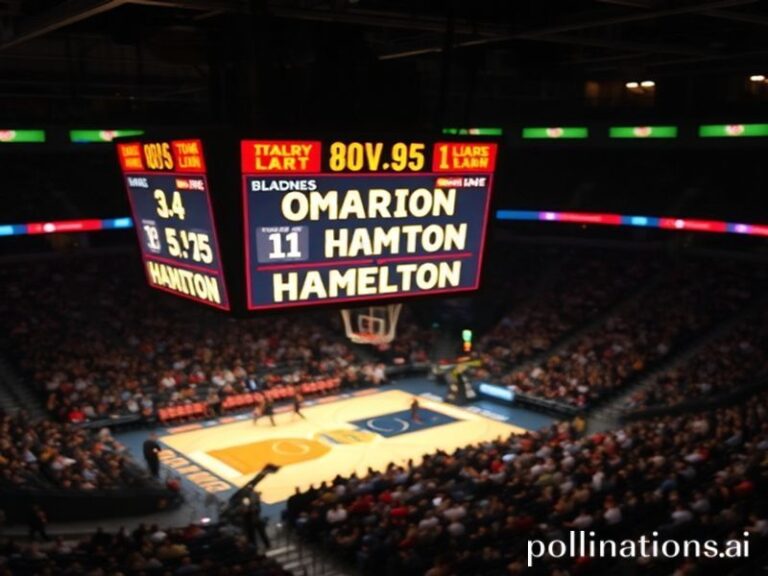AL East Standings: The Geopolitical Scoreboard America Pretends Is Just Baseball
From the cheap seats of the global economy, few scoreboards flicker with more schadenfreude than the American League East standings. While the rest of the planet frets over tightening grain corridors, runaway currencies, and the slow-motion demolition of the Antarctic ice shelf, this five-club cabal on the eastern seaboard of the United States continues to treat the pursuit of a pennant like a geopolitical arms race in cleats. The rest of us rubber-neck, because if you squint hard enough, the AL East looks like a compressed version of the world order: a couple of superpowers with bottomless budgets, a few medium-sized economies forever “rebuilding,” and one scrappy island nation that still thinks grit can outrun inflation.
Take the New York Yankees, the undisputed hegemon of the division. Their payroll is larger than the GDP of Montenegro, and their fan base has the collective emotional range of a Bond villain. When they slump, CNBC runs sidebars about the drag on ticket-tax revenue in the greater tri-state area; when they surge, European bond traders mutter darkly about American exceptionalism and reach for another espresso. Their success, like most empires, is propped up by questionable accounting: a cable-TV deal so bloated it could bail out a small Mediterranean country, and a training room that reportedly has more titanium than the International Space Station.
Hovering just below, the Tampa Bay Rays are the Singapore of baseball: efficient, inventive, and chronically under-resourced. They win 95 games on a budget that wouldn’t cover the Yankees’ luxury-tax bill. International observers admire the Rays’ ingenuity the way development economists admire Vietnamese supply chains—then promptly ignore them because they’re not photogenic enough for prime time. Their ballpark looks like a repurposed airplane hangar, and their attendance figures resemble an indie film festival on a Tuesday night.
Further north, the Toronto Blue Jays play inside a literal dome, a fitting metaphor for a franchise that has spent three decades trying to convince itself it’s in North America but not of it. The Jays import talent like a commodities desk: a shortstop from the Dominican, a slugger from Vladivostok via Montreal, a pitching coach who speaks fluent analytics. Their fans travel across borders with the fervor of climate refugees chasing October sunshine. When the loonie dips, scalpers in Buffalo take the hit; when it rallies, scalpers in Dunedin upgrade their boats.
Boston, meanwhile, oscillates between revolutionary zeal and Jacobean tragedy. The Red Sox have won four titles this century yet still behave like underdogs—a psychological trick the British Foreign Office once labeled “performative colonist.” Their front office treats prospects the way Silicon Valley treats privacy promises: lavishly praised, then quietly traded for a rental closer at the deadline. The city’s sports-talk radio could be weaponized by the UN if we ever figure out how to translate the accent.
And then there is Baltimore, the division’s Venezuela: once flush with Cal Ripken-era oil money, now reduced to bartering international bonus slots for used pitching machines. Their rebuild is so patient it could qualify for a UN heritage grant. Tourists who stumble into Camden Yards are advised to bring hard currency and low expectations; locals have learned to treat every victory like an eclipse—photograph it, post it, and pretend it happens all the time.
What does any of this mean beyond the foul poles? Simply that the AL East is a tidy parable of late-stage capitalism. The rich rig the rules, the clever improvise, the nostalgic cling to faded glory, and the truly desperate pray for a draft-lottery miracle. The standings update daily, but the plot never changes: a handful of zip codes in the northeastern United States playing out the same resource wars the rest of us watch on grainy satellite feeds. In a world tilting toward entropy, it’s almost comforting—like discovering that the apocalypse will still have box scores.







